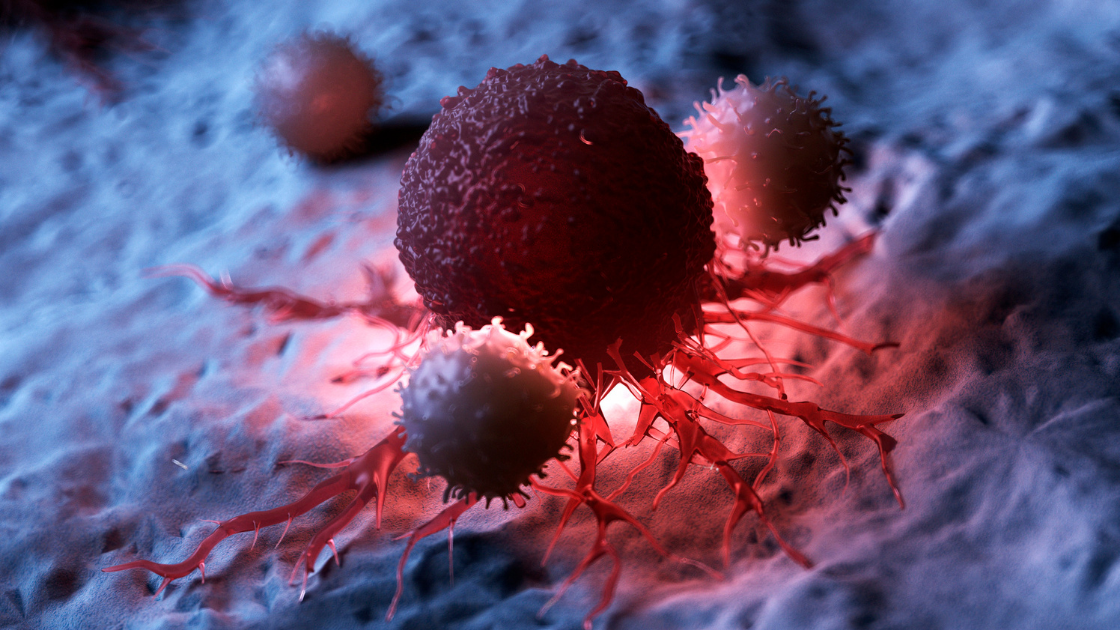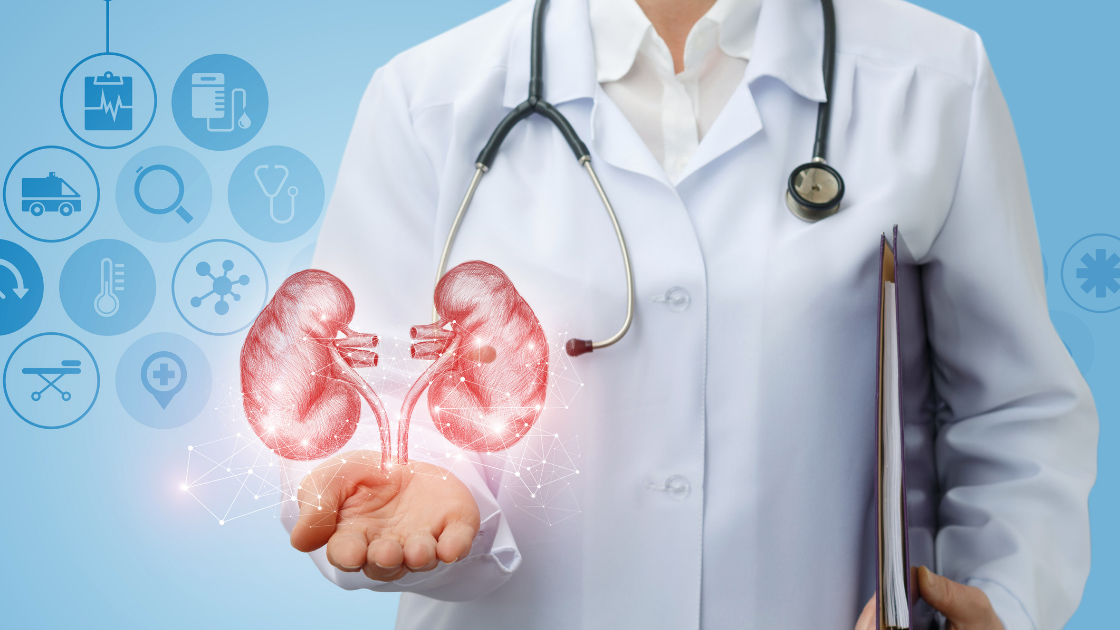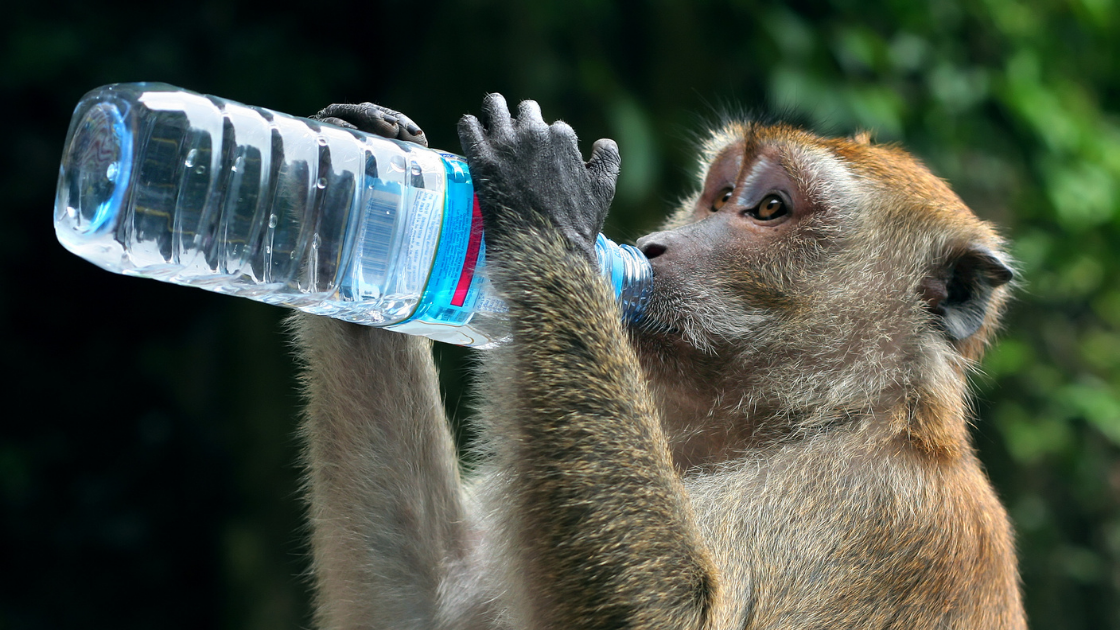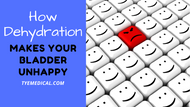Is Your Bladder Feeling the Effects of Dehydration? Here’s Why It Matters
Written by TYE Medical on Jan 19th 2021
You’re a health-savvy individual who strives to get in those 64 ounces of liquids a day, right? No way you could be dehydrated. Well, some effects of dehydration aren’t so obvious, and it turns out many people don’t even know when they are dehydrated. Adequate hydration depends on the net fluids you’ve gained throughout the day – because you lose some naturally (sweating) and through diuretic beverages. (We’ll get to that later.)
Since 60-70% of your body is made up of water, your general health depends on hydrating beverages (and even foods) to keep it going. Proper hydration energizes muscles to prevent fatigue, moisturizes skin, flushes toxins and waste from your body, and keeps your brain functioning at optimal levels.
Your urinary tract benefits from the right amount of fluid too. If you’re experiencing uncomfortable bladder problems like infections, irritation, leaks, or pain, then be sure to evaluate your fluid intake and output and make the right adjustments. Here’s how!
How Dehydration Affects Your Bladder Health
Dehydration happens for two reasons:
- You’re not drinking enough hydrating liquids
- You’re expelling liquids more quickly than you’re taking them in
The latter often happens when you’re exercising and sweating enough to diminish your fluid levels but haven’t taken in enough to replace what you’ve lost.
If you’re drinking beverages that act as a diuretic (see below), then you might also be passing more fluids than you’re ingesting.
Either way, your body suffers the effects of dehydration.
But what about your bladder? How is that affected by low fluid intake?
1. Increases Risk of Bladder Cancer

According to the American Cancer Society, a lack of fluids is considered a risk factor for bladder cancer. Flushing the bladder with hydrating liquids, especially water, means you urinate more often and keep cancer-causing chemicals from sitting in your bladder too long.
Also, keep a check on your urine color to be sure it’s not too concentrated. Chances are, plenty of nasty chemicals live in that high volume of waste, and you don’t want that hanging around in your bladder!
2. Causes Bladder Irritation
Not only do those chemicals and toxins in urine put you at risk for bladder cancer, but they also irritate your bladder. This is especially true when your urine is concentrated and held in your bladder too long.
If you’re not drinking enough, then you won’t feel the urge to pee as often. Meanwhile, the urine you have accumulated sits in your bladder – irritating the lining. An irritated bladder is one of the effects of dehydration. It creates bladder discomfort and mimics the feeling of a bladder infection.
Once your bladder is irritated, you’ll feel the need to go – urgently and often. Again, like a bladder infection. For some people, this leads to bladder leaks or urge incontinence.
Sometimes, an irritated bladder triggers inflammation of the bladder lining that develops into IC (interstitial cystitis). This is especially true if you have risk factors for this condition.
3. Leads to More Frequent Bladder Infections
If you’re not urinating often enough, it allows bacteria to multiply in the bladder and cause infection.
Regular trips to the bathroom flush out your bladder, keeping it free from bacteria that invade (most commonly) through the urethra. If you’re not going often enough, the bacteria linger, sometimes leading to infection.
The less you drink, the less you urinate, putting you at greater risk for a bladder infection.
Effects of Dehydration on Your Kidneys

Your kidneys sit above your bladder, one on each side, connected by ureters (tubelike structures that carry urine from your kidneys to your bladder for disposal.
When your kidneys aren’t functioning well, you can feel the effects in your bladder too.
So what happens to your kidneys when you’re dehydrated?
Greater Risk for Kidney Infections
Most often, a kidney infection develops from an untreated (or undertreated) bladder infection. The bacteria invade through the urethra, affect the bladder, and then infection travels up the ureters to the kidneys.
Typically, you would treat the infection before it reaches the kidneys. But sometimes people put off going to the doctor too long. They might try to treat the bladder infection at home or simply don’t notice infection symptoms.
But dehydration makes it more likely that the infection will spread through your urinary tract to your kidneys. See your doctor if you have symptoms of a urinary tract infection, and remember it’s one of the common effects of dehydration.
More Likely to Develop Kidney Stones
According to the American Kidney Fund, a common cause of kidney stones is not drinking enough water.
Kidney stones form when concentrated urine causes a buildup in your kidneys. This buildup forms clumps of waste that are often referred to as “stones.”
Drinking plenty of water is the best way to keep your urine diluted and your kidneys free of waste residue.
For more information, please read our article, Avoid These 5 Habits to Maintain Healthy Kidneys.
How to Tell If You’re Dehydrated

You Feel Thirsty
Sometimes underlying health conditions like diabetes, diabetes insipidus, or dry mouth (including Sjogren’s syndrome) increase thirst. But aside from these conditions, natural thirst signifies that your body is already low on fluids. In fact, it’s best not to wait until you feel thirsty to grab a refreshment.
As people age, it becomes more challenging to feel thirst sensations, which means you’re well into dehydration stages before recognizing your need for a drink.
Your Urine Is Dark Colored
Check your urine color. Dark yellow or amber urine is one of the effects of dehydration. This means you have concentrated urine. Your body is using a smaller amount of fluid to flush toxins and waste from your body.
In other words, your urine contains a high concentration of waste because you didn’t have enough fluid to flush it out adequately.
When sufficiently hydrated, your pee will be a noticeably light yellow or more transparent.
And if it smells strong – that’s also an indicator of concentrated urine and dehydration.
You have Skin Problems
Your skin naturally loses moisture because of sweating and colder, dry air. But dry skin also develops from lack of fluids. Our skin offers tell-tale signs of dehydration like:
- Cracking of skin or lips
- Flaking or roughness
- Flushing or redness
- Cold or clammy skin
- Tightening (less plump skin)
You’re Constipated
If you haven’t pinpointed a cause for harder, infrequent stools, then dehydration might be to blame. It’s one of the effects of dehydration and can also worsen an existing problem.
Water helps digest food and move it through your digestive tract. Without sufficient fluids, your intestines become sluggish and unable to move waste through adequately. And the stool itself is dry and less pliable, compounding the problem.
Your Breath is Bad
When dehydration sets in, your dry mouth emits bad breath. This happens because your body doesn’t have enough water to make sufficient saliva.
Dry mouth accelerates the growth of bacteria that produce the odor known as “bad breath.”
You Feel Tired After A Good Night’s Sleep
While several underlying health conditions could cause this problem, it’s also among the many effects of dehydration.
When you’re properly hydrated, fluids deliver the right amounts of oxygen and nutrients to your muscles, thereby increasing energy levels. So when you don’t drink enough hydrating fluids, fatigue sets in.
Additionally, dehydration lowers blood pressure, which is known to cause fatigue.
You’re Getting Headaches
You don’t have to be severely dehydrated to bring on a headache. It can happen with only mild dehydration. Low blood pressure is one of the effects of dehydration, and it can trigger headaches in some people.
You Have Foggy Brain
The effects of dehydration include difficulty with concentration, memory, and alertness. Since over 70% of your brain is made of water, hydration plays a crucial role in its function.
How to Get the Right Amount of Daily Fluids
Maybe you’d decided it’s time to increase your fluids to combat the adverse effects of dehydration. So how much do you need?
The traditional 64 ounces (or eight 8 oz glasses) per day is a generic guide. Many people’s bodies need more than this. It all depends on your activity level, propensity for sweating, medication, and underlying health conditions.
So first, be sure you’re getting the magic number – 64 ounces – each day. Then, keep an eye on your urine color. If you’re still having some headaches and feeling fatigued, try increasing this amount until you find the right level of hydration for your body.
Compensate for Activity and Climate
If you have days when you’re more active, exercising, or sweating, increase your usual fluid intake to compensate for the lost liquid.
Also, keep in climate in mind. If your hometown has a dry season or cold winters, you might need to drink more to compensate for the dry or cold air.
Caffeine and Alcohol Flush Out Healthy Fluids
Not all liquids are hydrating. Anything with caffeine or alcohol will make your body expel extra liquid (and more quickly). In other words, these ingredients are dehydrating, and count against your 64 ounces!
But this doesn’t mean you can’t enjoy a couple of cups of coffee a day. Just ensure you’re taking in enough fluids overall to account for the loss.
Fruits and Veggies Can Help You Stay Hydrated

Not a big drinker? Are you wondering how you’ll imbibe enough hydrating fluids to keep your body happy?
Remember that many fruits and vegetables can help you stay hydrated because they are water-rich foods.
Check out the water content in these everyday produce items:
- Lettuce 96%
- Celery 95%
- Cucumber 95%
- Tomatoes 94%
- Cabbage 92%
- Cauliflower 92%
- Watermelon 92%
- Oranges/Grapefruit 88%
Remember to Stay Well Hydrated Despite Leaks
Bottom line – your urinary tract needs adequate hydration for healthy operation. You can stave off the effects of dehydration, including a host of bladder, kidney, and other conditions, by simply drinking enough hydrating fluids.
Just remember that not all fluids are hydrating, and you can gain some extra help from most fruits and veggies.
Meanwhile, keep the fluids coming – even if you battle bladder leaks. Staying mildly dehydrated will create more bladder problems and aggravate incontinence rather than helping it.
For light incontinence, try our LivDry Ultra-Thin Pads for discreet, secure protection that’s easy to wear.
For heavier leak protection, try LivDry Protective Underwear for discreet protection and maximum absorbency.


